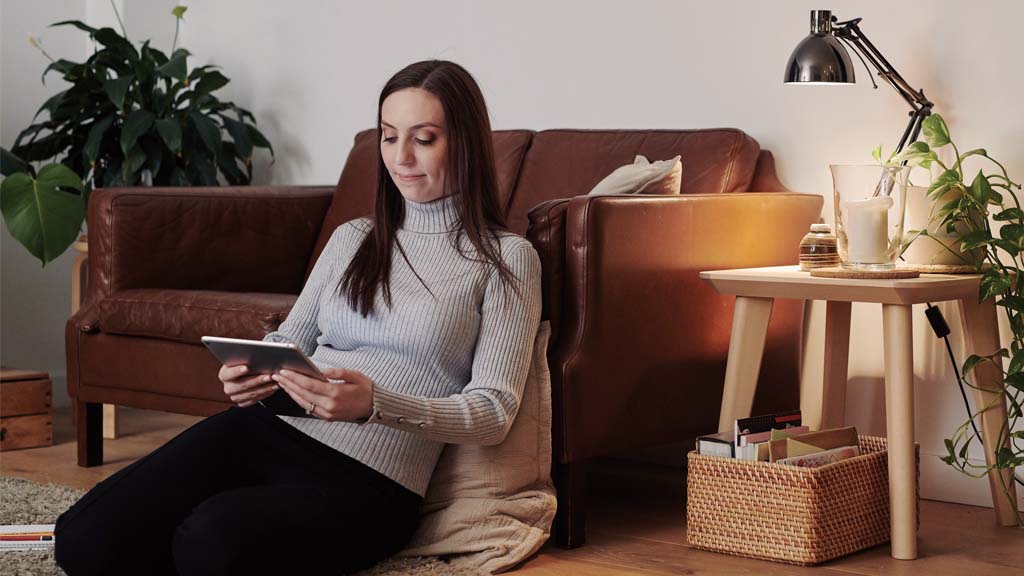Access for all: see Deakin’s award-winning initiatives to improve digital content
Here at Deakin, we are constantly striving to improve the accessibility and usability of our digital environment, including our website and learning materials. It is essential that all students and staff have equitable access to unit, course and University information.
To mark Global Accessibility Awareness Day (GAAD) on Thursday 19 May, several Deakin staff were honoured for their commitment and efforts to improve the University’s digital accessibility at the Accessibility in Action Awards. Hosted by the Australian Disability Clearinghouse on Education and Training (ADCET), the Awards recognise staff from across the Australian tertiary education sector for their work in making education more inclusive.
It’s wonderful to see this great work recognised and to remember that the real winners are our communities; staff, students and partners. Professor Liz Johnson, Deputy Vice-Chancellor Academic
Deakin’s award recipients have found ways to improve students’ digital experience spanning from Orientation all the way to graduation – check out the winners and their respective projects below.
Well done to our award winners!
Embedding Accessibility award
The CloudFirst team won the Embedding Accessibility award for developing the CloudFirst HTML accessible templates, currently being designed and developed to help lift the minimum standards of unit sites across Deakin. The CloudFirst template is geared towards embedding inclusive digital design into regular University-wide unit design practices.
First Impressions Matter award
The Orientation Team won this award for designing and building a new Unified Orientation program aimed at reducing barriers to engagement, providing all commencing students with a sense of belonging and connection, and for delivering a large range of real-time and asynchronous programs to meet diverse student needs and preferences.
Championing Accessibility award
The Accessibility Champions are a team of academics and professional staff embedded across Deakin representing many divisions, faculties and teams. They build resources, engage in consultations and champion accessibility from their position within their teams. As Ismail Zengin (Learning Environments Developer, Deakin Learning Futures) said in his acceptance of this award: ‘I joined this team because I once was asked by a staff member who I helped with an accessibility issue, ‘‘Where can I go to get help like this in the future?’’. At the time I didn’t have an answer for him. Now I am part of the answer.’
Sharing and Advocating Accessibility award
The Students with Assistive Technology (SWAT) team is a student-led initiative that has undertaken unit site testing, developed podcast interviews with other students with a disability, and advised and supported a range of students with assistive technology workarounds and knowledge. Their advocacy work is multi-faceted, and ranges from peer-to-peer interactions to making recommendations towards University-wide practices and procedures.
Setting a Higher Standard award
The Learning Innovation (SEBE) team and the Library developed an Active Reading guide that is accessible and, where needed, provides text versions to eliminate access barriers for students to support their core reading skills for both study and future professional roles. The guide was developed to give students choices about finding and adopting a reading approach that works best for them.
Improving Information Access award
Staff members Sue Rolland and Kat Fisher made the Deakin University Student Association (DUSA) website and newsletter accessible to meet Web Content Accessibility Standards to benefit not only blind and vision-impaired people, but also people with cognitive, learning and/or motor disabilities. This work paves the way towards full and equal participation for all students at Deakin.
Leading By Example award
Francois Jacobs is tireless in his support of other blind students, helping them to navigate Deakin websites and unit sites, which is an integral requirement for study. This has enabled his fellow students to continue with their studies, achieve academically and to adopt self-sustaining study habits.
Learn more about accessibility at Deakin
We want you to have the best experience possible with Deakin resources and services. There are many more amazing teams and individuals working on improving digital inclusion at Deakin, so please reach out to share your experiences and/or feedback.
- Learn more about our efforts to improve digital content for all students.
- Meet Layla Clarkson-Eather, a blind student at Deakin who co-produced the Let’s get accessible podcast with the SWAT team.
- Got a great Deakin story? Let us know what services or resources have helped you succeed in your studies.
- Are you having difficulties accessing any information or services? Please tell us!
